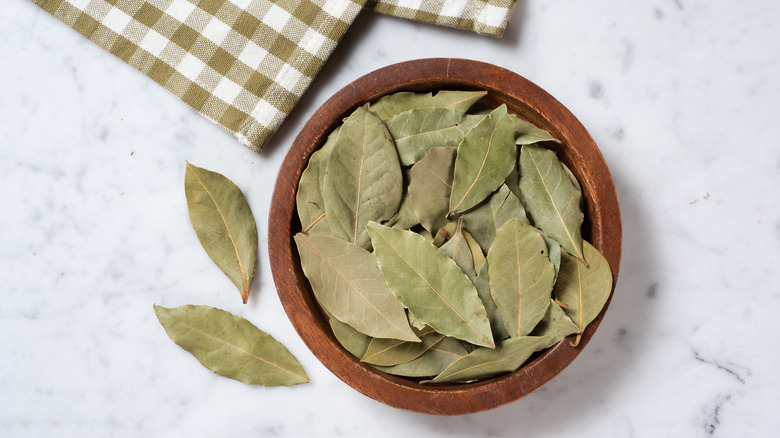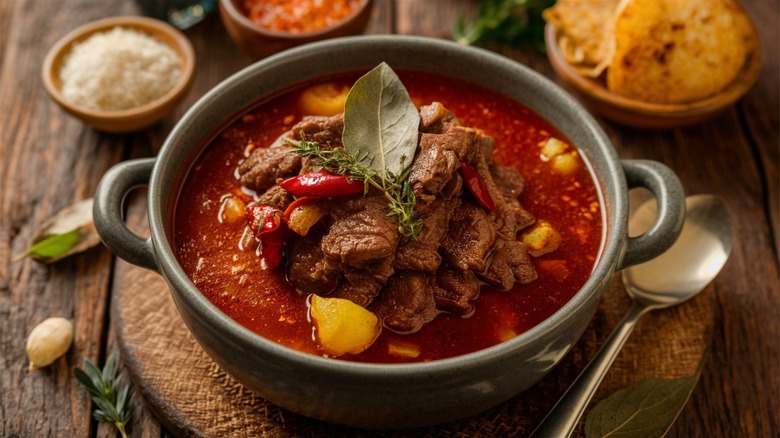Is It Safe To Eat Bay Leaves?
Bay leaves are one of the most common herbs found in grocery stores and in kitchen cabinets. It commonly pops up in hearty soup recipes, like classic comforting matzo ball soup or basic tomato and herb vegetable soup. This simple but powerful herb is useful in plenty of other dishes as well, like perfectly seasoning canned black beans.
Anyone who has ever cooked with bay leaves will have noticed that recipes almost always call for bay leaves to be removed before serving and consuming the final dish. There is an actual reason behind this. Even after cooking, whole bay leaves will remain hard and sharp; they also cannot be digested, which can result in the leaf getting lodged in the throat or intestines.
The sharpness and size of bay leaves can present a choking hazard, and it is possible that the leaves could scratch or even pierce the inside of the mouth or throat when consumed. Thankfully, due to their hard texture, pointy exterior, and bitter taste, it is highly unlikely that people will actually consume a bay leaf after accidentally biting it. Still, it is best to adhere to recipe instructions and remove bay leaves before serving food.
What happens if you eat a bay leaf
Bay leaves are fortunately not toxic or poisonous to humans. As a result, there are little to no symptoms that will appear after a bay leaf is consumed. It is quite possible for a bay leaf to pass through the digestive tract after consumption, although since humans cannot digest bay leaves, it will pass through entirely whole.
The only potential danger of consuming bay leaves does come from the fact that they cannot be digested. Bay leaves that are eaten in especially large chunks or as an entirely whole leaf can get stuck in the digestive tract. It is also possible for these large pieces to pierce or cut the intestinal wall, which will result in pain in the lower abdomen.
The only case in which bay leaves can potentially be safely consumed is if the leaves are ground into powder. However, it is noted that this is typically used for medicinal purposes rather than culinary purposes. As such, it is highly recommended that bay leaves not be consumed.

